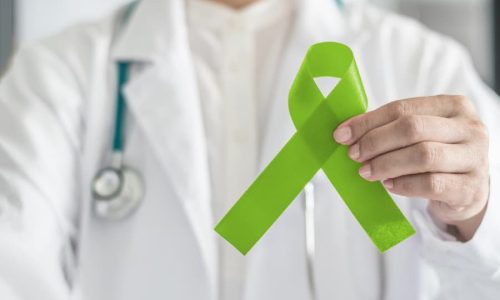
Weed Killer and Non-Hodgkin Lymphoma
Non-Hodgkin lymphoma is a cancer that affects the immune system. Some research indicates that exposure to glyphosate, a common ingredient in weed killers, may be
HIPAA Alert: Potential Data Breach Learn More
Questions on Oncology, Hematology and/or Infusion Clinical Services due to COVID-19 Crisis – CALL 833-698-1623
Important Information for Our Patients Regarding the Coronavirus.
RCCA Providing Area Cancer Patients with Access to Care During Coronavirus Outbreak
RCCA Offering Patients Virtual Visits During Coronavirus Pandemic
Lymphocytes are white blood cells in which lymphoma, a type of cancer that attacks the immune system, can originate. Hodgkin and non-Hodgkin lymphoma are two main subtypes of lymphoma. Symptoms for both are similar, but each subtype is distinguished by the type of cell it affects. As a result, treatment approaches can vary widely between Hodgkin and non-Hodgkin lymphoma, making proper evaluation and diagnosis crucial. Once patients receive confirmation that they have Hodgkin or non-Hodgkin lymphoma, a specific treatment plan can be formulated.
In New Jersey, Connecticut, Maryland, and the Washington, D.C., area, Regional Cancer Care Associates (RCCA) is home to a team of cancer care experts who treat patients with all forms of cancer, including lymphoma. Here, we discuss the difference between Hodgkin lymphoma and non-Hodgkin lymphoma, as well as what patients and their families can expect during treatment.

Lymphoma begins in the lymphatic system. This system circulates lymph, a fluid consisting mostly of water, throughout the body. The lymphatic system includes:
The function of the lymphatic system is to fight illness and maintain health. Lymph fluid delivers infection-fighting white blood cells (lymphocytes), as well as other substances, throughout the body to support immune function. Lymphoma develops when genetic mutations cause production of abnormal lymphocytes that cannot fight disease effectively.
As with all cancers, abnormal cells multiply and divide out of control, forming tumors. Lymphoma can spread rapidly, with the abnormal lymphocytes crowding out normal lymphocytes. Over time, the body becomes increasingly unable to fight the disease.
There are many subtypes of lymphoma, but Hodgkin and non-Hodgkin are the most common. There are key differences between them:
With Hodgkin lymphoma, Reed-Sternberg cells are present in the lymphatic system. This abnormal cell is a large, mutant lymphocyte. These cells multiply and divide rapidly and can form tumors., Reed-Sternberg cells often have more than one nucleus, giving them a distinctive appearance that is easy for physicians to identify under a microscope.
This form of the disease is less common than non-Hodgkin lymphoma, and is more likely to affect younger adults. Hodgkin lymphoma frequently presents in the upper body, such as in the armpits, chest, or neck. Symptoms commonly include:
More common than Hodgkin lymphoma, this subtype is not marked by the presence of Reed-Sternberg cells. Instead, typical abnormal lymphocytes are responsible for the cancer. Non-Hodgkin lymphoma is most common in adults over age 55. Symptoms commonly include:
To detect lymphoma, physicians usually begin with a physical exam, followed by an X-ray to check for swollen lymph nodes. A blood test, lymph node biopsy, and bone marrow test often are performed to check for blood cell imbalances or abnormal, cancerous cells. The type of lymphoma is then determined, in part by checking for Reed-Sternberg cells under a microscope.
Regional Cancer Care Associates’ oncologists and hematologists generally are not involved in the early evaluation of possible cancer. Instead, RCCA physicians see patients on a referral basis after they have been diagnosed with cancer. They also can help confirm a diagnosis if a physician’s findings contain strong, suggestive evidence of cancer. Patients experiencing worrisome symptoms are encouraged to visit their primary care physicians or appropriate specialists right away.
Treatments for these types of lymphoma depend on their stage, the patient’s overall health, patient risk factors, and other considerations. Regional Cancer Care Associates uses a multidisciplinary approach to develop treatment plans for each individual. In collaboration with patients and their families, the team of experts considers all the patient’s preferences for treatment.
When it comes to treatment for Hodgkin and non-Hodgkin lymphoma, patients generally can expect the following:
Because this type of lymphoma develops faster, more aggressive treatment is needed as soon as possible. Treatment may include:
This type of lymphoma usually is slow-spreading, so some patients might not require treatment at all. If this is the case, the patient’s condition is monitored over time. For non-Hodgkin lymphoma that begins to accelerate, chemotherapy or radiation therapy might be prescribed. In severe cases, a bone marrow transplant or more aggressive treatment options typically are recommended.
Regional Cancer Care Associates is standing by to provide best-in-class care for those diagnosed with lymphoma. For more information about oncology services in at one of RCCA’s conveniently located offices in New Jersey, Connecticut, Maryland, and the Washington, D.C., area, or to request an appointment, contact Regional Cancer Care Associates today.
For more information or to schedule an appointment,
call 844-346-7222. You can also schedule an appointment by calling the RCCA location nearest you.

Non-Hodgkin lymphoma is a cancer that affects the immune system. Some research indicates that exposure to glyphosate, a common ingredient in weed killers, may be

One of the most effective ways to treat cancer is to harness the power of the body’s own immune system. This method is called immunotherapy.

Hematologic cancer, or blood cancer, is one of the most common diagnoses treated at Regional Cancer Care Associates. Blood cancer refers to types like leukemia

Regional Cancer Care Associates is one of fewer than 200 medical practices in the country selected to participate in the Oncology Care Model (OCM); a recent Medicare initiative aimed at improving care coordination and access to and quality of care for Medicare beneficiaries undergoing chemotherapy treatment.